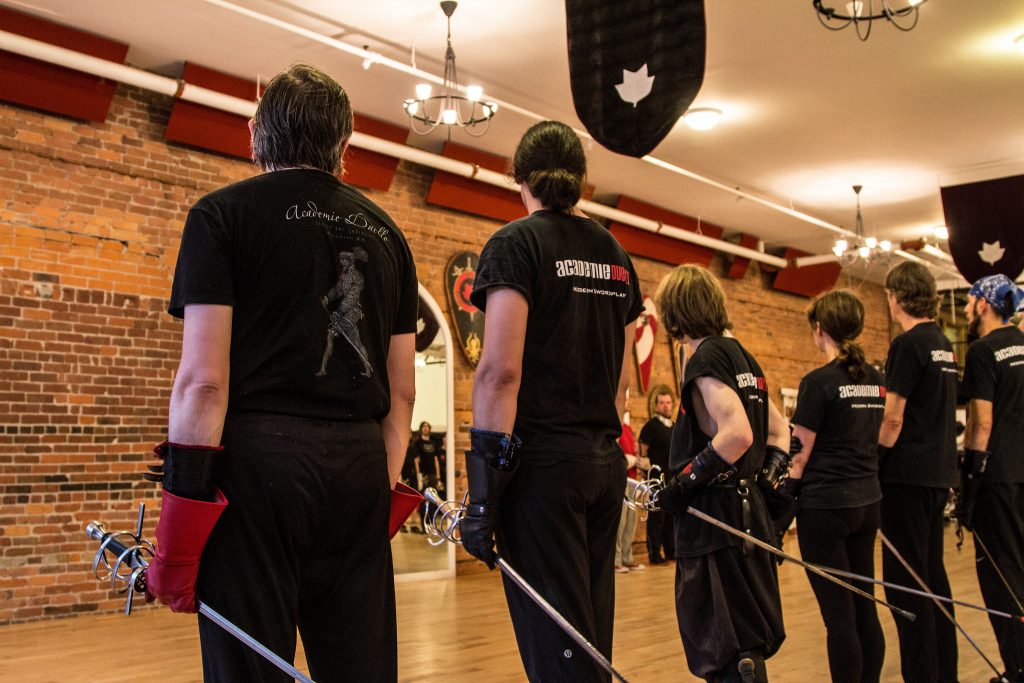Before I get into more conversations about mastery, and what this means when I apply the term to swordplay, I want to share some information about our next instructor course, which I’m very excited about.
Registration for our next Instructor Intensive (taking place from June 20th to 24th) will be opening on April 10th at 10am! This is a 50-hour kickoff to an 8 month long course that will take you through the first two levels of our technical and instructor programs.
If you’re excited about teaching the rapier or longsword and are interested in getting a leg-up in your practice and teaching approach, this is a great opportunity to learn from our years of experience here at Academie Duello.
The last two intensives booked up in less than a week, and the reviews have been stellar. If you’re excited about learning and teaching Historical European Martial Arts I recommend that you mark your calendar, and join us in June!
Why do we have a Master level?
Earlier this week I made a post where I challenged people to step onto the path of mastery. This led to a lot of interesting conversations in various corners of the Internet about what it means to be a Master and whether an art needs masters at all.
First, let’s define what we at Academie Duello mean when we talk about masters in our system:
- Individuals who practice our arts at a high level.
This does not mean that they need to be the most butt-kicking, badass fighters on the planet. Simply that they should be able to practice what they preach. They should understand the art in its elegance and its complexity and be able to conduct martial conversations that are technically articulate. - Teachers who own the principles, not just the techniques.
A student learns principles from techniques. A Master creates techniques from principles. Our goal is to help practitioners own the art at a deep enough level that they can not only teach it and practice it but also expand and innovate beyond its past. - Instructors who can convey the complete art.
To truly be a master, one must have a desire and ability to give the whole art to their students. Being a master has nothing to do with control and everything to do with building and promoting others.
I think the idea of a master, as described here, is inspiring. I don’t think we should by shy of the title, but truly it is irrelevant to the journey. Seeking mastery means approaching an art with a passion and discipline that goes above and beyond what most people strive for. It requires a level of commitment and resilience to put in the years and hours required to get there.
Seeing it as the end the journey is limiting. If your desire is only for what you feel the title might give you, it will be difficult to keep the energy and love of the art alive long enough to realize such a shallow goal.
Imagining what is possible, pushing yourself to be greater each day -- that’s the mindset required for mastery. For that, you need to recognize that pushing through the failures, knocks, and plateaus is part of the worth of an end goal. However, having a truly exciting long-term goal is often what motivates you to deeply connect with the process. It’s in the day to day practice where the real work resides and where the essential joy is. There is so much to love and savour at each step and the journey of mastery is truly without end.
If you seek to find power or recognition by virtue of a title, this may not be the best road for you. Titles only get you in the door. It’s your true worth and accomplishment that make your future. The destination is worthless without the work that goes into getting there.
If you deeply love an art, strive to be a master of it. The road in itself is worth the striving.
